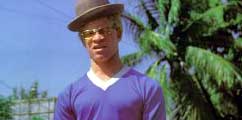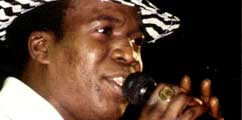So named because so many of
the records were deemed unfit for radio airplay and therefore
were suitable only for the dancehall. And the controversy
didn’t stop there.
Dancehall reggae established itself
through characters like Yellowman and General Echo and a
penchant for slackness (as bawdy lyricswere known). This
deejay-led, largely computerised, upstart music seemed to
epitomise the 1980s with dub poet Mutabaruka maintaining, "if
1970s reggae was red, greed and gold, then in the next decade
it was gold chains". So far removed was it from the gentle,
almost hippification of roots and culture, that purists
furiously debated as to whether it was genuinely reggae or
not.
But this was the whole point. Dancehall
represented a new generation of reggae’s primary audience
reclaiming the music for themselves after ten years of
roots’n’culture that: A) had not done a great deal to change
the way they lived; and B) it had been adopted so thoroughly
by the international mainstream it didn’t seem like "theirs"
any more. This was a new wave’s way of reacting to the
harshness of their environment and drew on hip hop’s brashness
to express themselves with an impatience not seen in roots
reggae. It needed a radical approach to shake reggae out of
its seeming complacency and dancehall opted for the apparently
obnoxious to satisfy nobody beyond the sound system crowds.
Producers like Henry Junjo Lawes and King Jammy’s made deejay
records that were as raw as those audiences wanted, with
deejays like Yellowman, Josey Wales, Lone Ranger, Eek-A-Mouse
and Brigadier Jerry. Not that it was all deejays, but singers
such as Barrington Levy, Little John, Cocoa Tea and Frankie
Paul had to struggle to be heard.
Of course the
rapidly developing studio technology played a big part as it
meant records could be made quicker and cheaper, with it
becoming far easier to version a rhythm once it was made. This
in turn allowed a flood of new talent into the business
ensuring that dancehall reggae would continue to stay fresh
for years to come.
|

